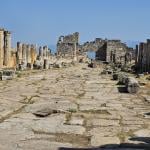Tournier ( Escape from Loneliness. , pp. 25-6) talks about the instability that results from religious conversions: “One woman, a soul eminently sensitive and deep, born a Catholic, was converted to Protestantism under influences which naturally I would not criticize. For her it was from an inner maturity and a sincere will to obey the leading of the Spirit, all of which bore spiritual fruit. Nevertheless, this change from one religion to another is a trial, for one no longer... Read more
















